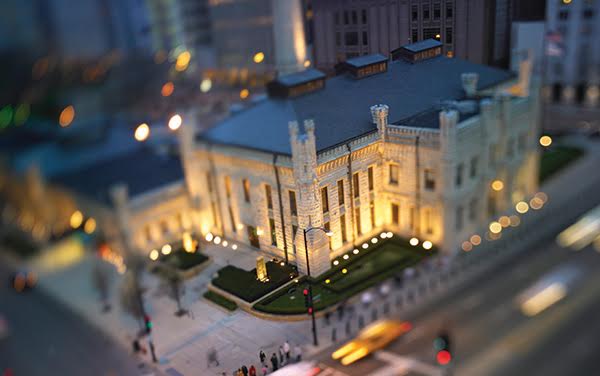Chicago theaters continue to deliver art during stay-at-home orders

Lookingglass Theatre uses podcasts to virtually bring artists and theater organizations to the public.
May 21, 2020
A&E
Theater companies in Chicago started closing in mid-March due to COVID-19 and have remained closed since. Under these new circumstances, Lookingglass Theatre started exploring new ways to engage an online audience through The Infinite Room podcast.
“(The podcasts) are really to talk about Lookingglass and our art, our work as theater makers and also as community members,” said Andrew White, director of community engagement at Lookingglass. “There’s a lot of overlap between the art-making and the community-building.”
White said podcasts evoke the imagination of listeners who do not have access to the visual details presented through videos. Requiring this imagination through podcasts is similar to how Lookingglass asks its audience to imagine stories beyond the stage, he said.
Listening to podcasts lets the mind build images based on words, White said. He said the style of theater Lookingglass does is evocative and works to paint imagery, which can be emulated through a podcast.
Most theater companies have had very little revenue coming in during the pandemic lockdown, leading them to adapt their programs to an online environment.
White said Lookingglass now has online acting classes for children, and these classes have been keeping some artists busy. However, he said planning in this format is difficult since it is unclear how long social distancing regulations will last.
“It’s going to take a little while before people feel comfortable gathering in an enclosed space to watch a play,” White said. “But it’s also really hard to know, people are… hungry to be together and share experiences together.”
Mary Zimmerman, a Lookingglass ensemble member and NU performance studies professor, agreed it will be tough for theaters in the short run because everything is shut down, but said that in the long run after the pandemic, people might value theaters more as a place to come together.
“It’s like illegal for us to earn our living… it was just such a total blow,” Zimmerman said. “And it ripples through not just actors, but the entire apparatus that runs around theater.”
Small Business Administration loans have given theater companies more time to work out finances. However, this may not be enough as theaters could potentially be some of the last places to open, putting artists in a precarious situation.
While the Lookingglass podcasts do not necessarily bring in revenue, founding ensemble member and NU theater professor David Catlin hopes the podcasts will demonstrate Lookingglass’s values and inspire people to consider making donations.
“Some of the other theaters are able to stream some of the work that they’ve done,” Catlin said. “Yet for us, it’s a little trickier because so much of our storytelling demands imagination and has visual components. Sometimes the way you experience in the theater does not translate to video.”
Goodman Theatre has been able to bring production of “School Girls; Or, The African Mean Girls Play” to online audiences using a streaming platform.
Professional theater productions often involve unions that protect the rights of the actors, which created a complicated process to get permission to stream the recordings.
“This challenging moment has proven an interesting opportunity for us at the Goodman, and arguably, theater in general, to push the envelope and explore the power and possibility of our ephemeral art form in the virtual space,” Goodman Theatre’s director of communications Denise Schneider said in an email.
However, Catlin hasn’t lost hope that Lookingglass, as well as theater in general, will be able to bounce back after shelter-in-place ends.
He said practicing theater is a visual storytelling form in which artists seek to understand what it is like to be human, and people will be more than eager to return to the stage when it is deemed safe.
“This idea of coming together as a community and willingly suspending our disbelief, and believing in something impossible together is a moment of rare beauty,” Catlin said.
Email: [email protected]
Twitter: @Rayna52637952
Related Stories:
— Lights, camera, action?: Campus performance-based groups adjust to producing shows and staying connected remotely
— Lookingglass Theatre Company builds community and inventive art through its unique ensemble-based approach
— Letter from the Editor: The highs and lows of art created in a pandemic











